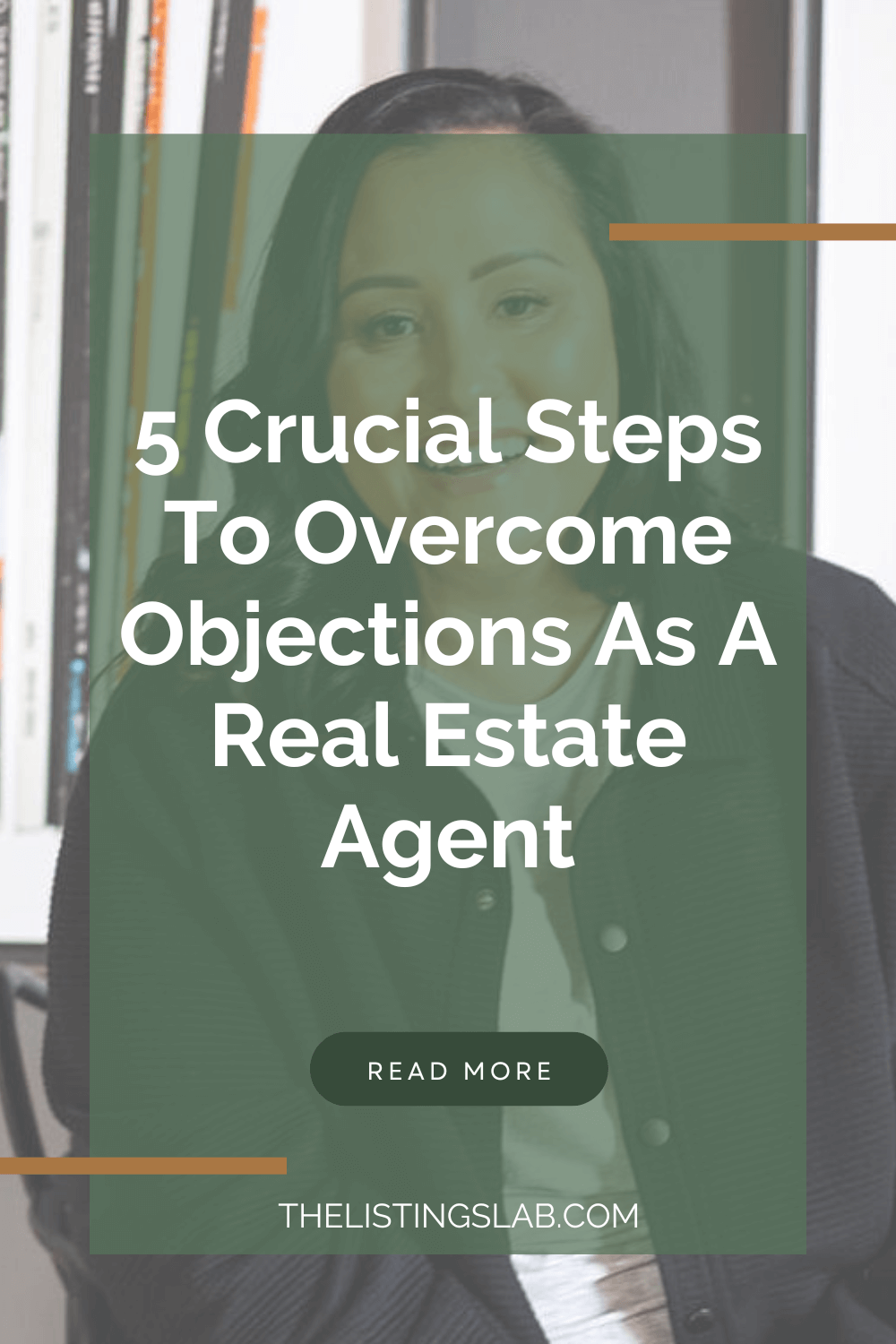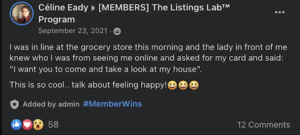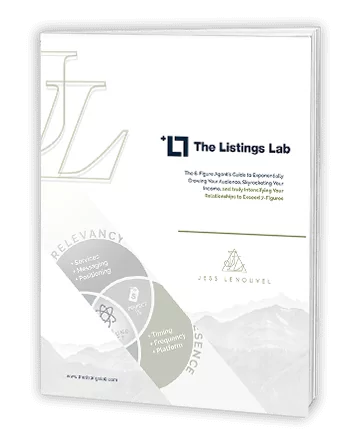What’s the key to standing out in today’s saturated real estate market?
Building a strong real estate personal brand.
What makes you different?
So many agents get lost in the sea of other agents because they’re terrified to break free from the “perfect realtor” mold.
But breaking free from what you think you “should” be doing is actually the key to successfully magnetizing more clients.
If you want to build a powerful real estate personal brand that makes lead generation effortless, keep reading for five tips to keep in mind.
Own Your Weird
Most agents don’t realize this, but people are actually getting tired of how real estate agents present themselves online.
Everyone is showing up as a carbon copy of one another.
In The Listings Lab, I teach real estate agents how to build a strong personal brand in the same way I’ve built mine as a real estate coach.
A lot of real estate gurus are preaching the same old things.
They look the same, dress the same, talk the same, and teach the same.
My motto in life and business is all about showing up as your true self.
I’ve grown my community by owning my weird.
I’m a crazy cat lady.
I’m obsessed with my husband.
I always have hair in a messy bun.
I don’t look like your typical real estate coach…but I look like me.
And people appreciate it.
If you want to strengthen your personal branding, ask yourself:
- What makes me different?
- What do I want to be known for?
- What are my values?
- What are my quirks?
And make sure you’re weaving those things into your real estate marketing strategy.
Have Fun
This might not be advice you hear every day, but I think it’s actually a big contributor to your success as a personal brand.
You have to genuinely love what you do.
I have so much fun running The Listings Lab. And my audience and clients can feel it!
People want to be around good people. People are attracted to those who vibrate at a higher frequency.
You may think that sounds a little “woo” but it’s true.
If you’re excited about your services, other people will be too.
We’re all human lie detectors.
If someone’s faking their enthusiasm in their content, we’ll be able to feel it.
If you have a genuine love for the work you do, that’s going to come through in your content, and your real estate personal brand will be that much more attractive to clients.
Be Polarizing
One reason agents struggle to stand out on social media is that they’re so afraid to say anything controversial that might offend someone.
So they “play it safe” in their content, resulting in generic posts that never seem to gain any traction.
A strong real estate personal brand produces a sort of brand evangelism.
But you’ll never be able to achieve that if you’re always trying to play it safe in your content.
You have to be willing to offend some people if you want to attract YOUR people.
Sharing polarizing opinions is one of the biggest ways I’ve been able to build such a strong personal brand.
For example, I lean into the fact that I don’t believe referrals are a solid way to grow your business.
For any industry filled with agents that think running a “repeat and referral business” is a badge of honor…this makes some agents dislike me.
Read my post on real estate referrals to learn more about why I don’t believe they’re a sustainable way to run your business.
To lean into your polarizing opinions and strengthen your real estate personal brand, ask yourself…
What do I think I do that’s different than other agents or people in my niche?
And lean into the controversy!
Focus On Marketing > Sales
Everyone knows that sales are important in real estate.
But I actually want to let you in on a little secret…
If you’re a really great marketer, you actually don’t have to be a really good salesperson.
When you understand buyer psychology and weave that into your online content, your marketing sells for you.
You no longer have to go into that pushy used car salesman mode.
Instead, you’re able to create genuine connections with people online that turn into clients.
Your online content magnetizes the leads that are meant to work with you.
You’re able to attract clients rather than hustle for them.
While yes, you still need to understand the framework of a successful sales conversation if you want to close more deals, but your marketing does a lot of heavy lifting for you.
Find Your Niche
Agents who advertise themselves as working with everyone, everywhere will not be successful in creating a profitable personal brand.
Saying “I help buyers, sellers, and investors from here to Timbuktu!” is the fastest way to make yourself forgettable.
Instead, you need to craft a signature system that gets results for a specific type of person.
Let me give you an example of one of our members who did an INCREDIBLE job with this in The Listings Lab.
This particular member is an agent in New York City.
Prior to being an agent, she was a lawyer, so she understood type-A women very well. Because of this, she decided she would niche down and exclusively serve corporate women.
As she started working with this demographic, she realized that they all were experiencing a similar problem.
These women were very busy, and at the same time, they liked to be in control.
So each time a property would come up, they wouldn’t trust anyone else to go preview them.
Her clients kept missing out on properties and sometimes the search would last eight or nine months.
So she came up with a genius solution to this issue.
Just like every other agent, she’d spent the first meeting going over must-haves, nice-to-haves, etc.
But she actually took it a step further and made her clients assign a number ranking for the importance of each feature they were looking for.
So each time a property came out, it was automatically put into a spreadsheet and system that spit out a number ranking for each property.
When onboarding clients, she explained this system, and together they agreed that each week they’d go see the top three properties.
The corporate women LOVED this system.
They felt their time was being respected. They were always shown properties at the same time each week, so they could easily fit it into their busy schedule.
And best of all, their agent was speaking their language. By getting data-driven reports each day on the top properties, they felt 100% understood by their realtor.
Do you want to know what happened next?
Her business absolutely exploded.
The corporate women were telling ALL of their friends about her.
Not to mention, her online personal brand gained a lot of traction.
Because she wasn’t trying to speak to the masses. She spoke to a specific person struggling with a specific problem.
As I always say…
If you’re trying to speak to everyone, you’re speaking to no one.
Niching down based on ZIP code is no longer viable.
When you’re able to target based on human being or life transition, your marketing becomes 1000x easier.
And your real estate personal brand starts to snowball.

Ready to learn more about mastering online real estate marketing so that you can become the only choice for your ideal clients?







